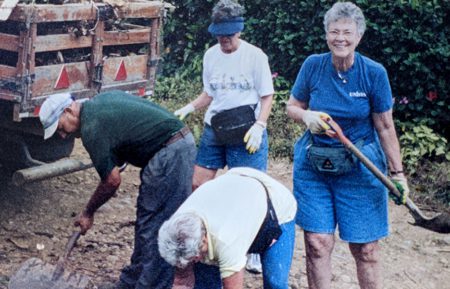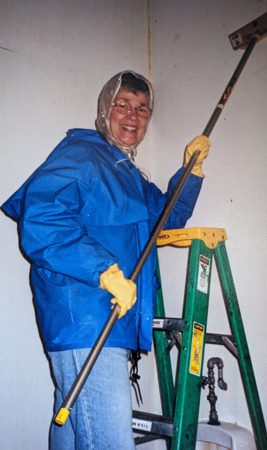It’s been said before, but it is worth repeating: who you tell about your ostomy and when you tell them is completely up to you. This is the first and foremost rule you should keep in mind when it comes to sharing about your ostomy. Most likely others won’t know you have an ostomy unless you bring it up. If you are reading this before your surgery, you will need to think about what kind of support you are looking for. As you decide to let people in on your new situation, consider who can offer you the support and friendship you need during this time.
Place of Work
There is no right or wrong way when it comes to sharing about your ostomy at work. It might be that no one needs to know about it, it doesn’t affect your work and you are receiving enough support from friends and family and other people outside of work. Or, your situation might be that you need to take frequent breaks to empty your pouch and so explaining a little bit about your surgery will help your employer to understand what’s going on. Again, feel free to be as specific or general as you want. It might even be helpful to write out a small script so you can go into this conversation with added confidence. Decide how much you want to share, and how willing you are to answer questions.
Family and Close Friends
Hopefully, you aren’t trying to go through this life-changing experience alone. Family and/or friends should be the foundation of your support network. Having someone you trust at medical appointments with you can be helpful for your morale, but also to have another set of ears to remember details and information that you may have missed. When you decide to let other people close to you in on the reality of your situation, ask the person who was with you at those appointments to be there to support you. It’s amazing how much more confident we can feel having the energy of a loving and loyal person at our side.
Romantic Partners
If you are in a committed relationship prior to your surgery, then it’s likely they will be informed of your ostomy and the changes to your body. While it can be scary to let people in and tell them about your ostomy, it can be even scarier to be alone in the process. Going through this with a partner by your side can be so beneficial to your recovery process, and can also help to strengthen your relationship.
Dating after your ostomy can seem daunting at first, but as you heal and become more and more comfortable with your new routine, your confidence will grow. Keep in mind that it’s completely up to you when to tell a new romantic partner about your ostomy. As with your workmates, you may want to take the time to figure out what you want to say before you say it. It’s okay to keep it short and basic and then decide if you want to take some time to answer questions.
Confidence
The more confident and comfortable you are with your ostomy, the more this will show when you speak about it. Be patient with yourself and allow yourself time to heal and get used to the changes and new routine that an ostomy brings. Try to focus on the positive things that having an ostomy surgery has done for you and your body. It may be helpful to speak with others who are in a similar situation. Talk to someone who has gone before you and find out how they told people about their ostomy.
It’s up to you who you tell, when you tell them and how you do it.
Visit the Coloplast Care site for more information on sharing about your ostomy at work.
Information from Coloplast® Care is for educational purposes only. It is not intended to substitute for professional medical advice and should not be interpreted to contain treatment recommendations. You should rely on the healthcare professional who knows your individual history for personal medical advice and diagnosis.
Editor’s note: This blog is from one of our digital sponsors, Coloplast. Sponsor support along with donations from readers like you help to maintain our website and the free trusted resources of UOAA, a 501(c)(3) nonprofit organization.





